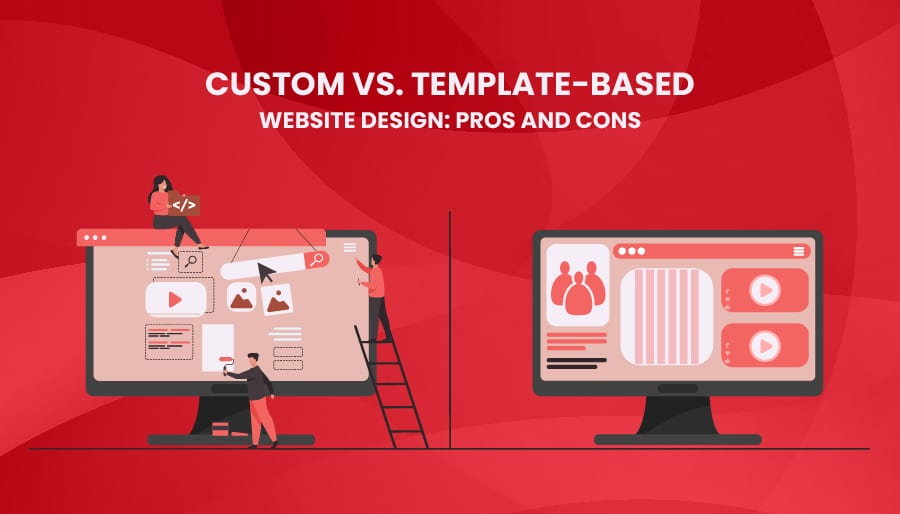The Best Tools for Enhancing Website Security
In this day and age, the importance of website security cannot be overstated. Due to the fact that cyber threats are always growing, it is absolutely necessary for website owners to make use of powerful technologies in order to safeguard their websites. In this post, we will discuss some of the most effective technologies that are currently available for boosting website security. These tools will ensure that your website is protected from a wide range of cyber attacks. The Best Tools for Enhancing Website Security

1. Web Application Firewalls (WAF)
a. Cloudflare
There is a lot of familiarity with the name Cloudflare in the field of web security. Its Web Application Firewall (WAF) is a strong tool that helps defend websites from a variety of risks, such as SQL injection, cross-site scripting (XSS), and other dangers that are included on the OWASP Top 10 list. Cloudflare’s Web Application Firewall (WAF) ensures robust security without requiring a substantial amount of manual intervention by continuously updating its rules to address newly discovered vulnerabilities.
b. Sucuri
Sucuri provides a comprehensive web application firewall (WAF) that safeguards websites against a wide range of attacks. Its Web Application Firewall (WAF) not only prevents harmful traffic from entering the network, but it also improves performance by caching content and lowering the strain on the server. The global network that Sucuri use guarantees low latency, which makes it a fantastic option for websites that receive traffic from all over the world. https://diversewebsitedesign.com.au/motel-website-design/
2. Security Plugins
a. Wordfence
One of the most well-known security plugins for WordPress websites is called Wordfence. Malware scanning, firewall protection, and login security are just few of the features that are included in its extensive feature set. The real-time threat defense feed that Wordfence provides ensures that the plugin is always up to date with the most recent firewall rules, malware signatures, and malicious IP addresses. This helps to ensure that your website is protected from any new threats that may emerge.
b. Sucuri Security
One such fantastic plugin that is available for WordPress users is called Sucuri Security. As part of its comprehensive security suite, it offers features such as monitoring the integrity of files, scanning for malware remotely, strengthening security, and performing post-hack security operations. Users have an easier time monitoring and managing the security of their websites because to the extensive dashboard that Sucuri provides.

3. SSL Certificates
a. Let’s Encrypt
SSL/TLS certificates are made available by Let’s Encrypt, which is a certificate authority that is open, automated, and does not cost anything. For the purpose of encrypting data that is being communicated between the server and the client, SSL certificates are absolutely necessary. This prevents sensitive information from being intercepted. Because it makes the process of acquiring and renewing SSL certificates more straightforward, Let’s Encrypt is a fantastic choice for website proprietors for this purpose.
b. DigiCert
When it comes to the SSL certificate industry, DigiCert is a name that is trusted. There is a wide selection of SSL solutions available, ranging from simple certificates for a single domain to more complex certificates for multiple domains and wildcards. DigiCert is a dependable option for companies of all sizes because of its reputation for providing outstanding customer assistance and issuance times that are considered to be quite quick.
4. Malware Scanners
a. SiteLock
SiteLock is an all-encompassing security solution that includes vulnerability patching, automatic malware removal, and detection for malicious software. The daily scans that it performs guarantee that any malware is identified and removed as soon as possible, thereby reducing the likelihood that your website will be damaged. A full package of security capabilities is provided by SiteLock, which includes a web application firewall and protection against distributed denial of service attacks.
b. Quttera
Through its comprehensive malware scanning technology, Quttera is able to identify and eliminate malicious software from different websites. In order to identify potential dangers, it employs heuristic algorithms and signature-based detection approaches. Additionally, Quttera offers comprehensive reports and recommendations for restoration, which in turn assists website proprietors in comprehending and successfully addressing security difficulties.
5. DDoS Protection
a. Akamai
Akamai is the industry leader when it comes to providing DDoS protection services. This company’s Prolexic platform provides sophisticated DDoS mitigation and is able to deal with attacks on a comprehensive scale. The global network that Akamai maintains ensures that fraudulent traffic is identified and neutralized before it can reach your website, thereby offering effective security against distributed denial of service assaults.
b. Imperva
Protecting websites, applications, and entire networks from distributed denial of service attacks is one of the many services that Imperva provides. Your website will be protected around the clock with Imperva’s Always-On and On-Demand Distributed Denial of Service (DDoS) protection services. Imperva is a dependable option for providing protection against distributed denial of service attacks because to the comprehensive threat detection and mitigation capabilities it possesses.
6. Backup Solutions
a. CodeGuard
Through the provision of automated website backup solutions, CodeGuard guarantees that your data will remain secure and can be recovered in the event that there is a breach in security. In the event that your website experiences any kind of data loss or corruption, CodeGuard’s daily backups, in conjunction with its one-click restore capability, enables you to easily recover it.
b. UpdraftPlus
One of the most well-known backup plugins for WordPress websites is called UpdraftPlus. It provides comprehensive backup options, which include backups that are scheduled to be sent to remote storage destinations such as Google Drive, Dropbox, and Amazon S3. UpdraftPlus also enables incremental backups, which store only the changes that have been made since the last backup. This reduces the amount of work that needs to be done on the server and the amount of storage space that is needed.
7. Security Monitoring and Management
a. New Relic

The solutions that New Relic provides for enhanced monitoring and performance management feature. Detecting weaknesses and potential attacks in real time is made easier by the security monitoring services the system delivers. New Relic offers comprehensive insights into the performance and security posture of your website, which enables proactive control of any possible problems that may arise over time.
b. Datadog
As part of its suite of capabilities, the monitoring and analytics platform known as Datadog offers security monitoring as one of its services. Through its integration with a wide range of security technologies and its provision of full visibility into the security status of your website, it assists in the detection and removal of potential security threats. The detailed dashboards and notifications that Datadog provides make it simple to manage and respond to security events using the platform.
8. Vulnerability Scanners
a. Nessus
A vulnerability scanner that is among the most popular is called Nessus, which is developed by Tenable. When applied to a wide range of systems, it assists in the identification of vulnerabilities, misconfigurations, and compliance issues. Nessus presents website owners with comprehensive reports and recommendations for remediation, which makes it simpler for them to fix vulnerabilities in their website’s security.
b. Acunetix
Acunetix provides a comprehensive web vulnerability scanner that can identify a broad variety of vulnerabilities, such as SQL injection, cross-site scripting, and other typical threats. The deep scanning technology that Acunetix employs guarantees comprehensive coverage, and the detailed reports that it generates assist website owners in comprehending and resolving security issues in an effective manner.
Conclusion
Strengthening the security of a website is an ongoing activity that requires the utilization of a variety of tools in order to provide protection against a wide range of threats. When it comes to protecting your website, each instrument plays an important part. This includes web application firewalls and security plugins, as well as SSL certificates and DDoS prevention technologies. You will be able to greatly improve the security posture of your website and defend your online presence from any cyber threats if you put these top tools into action. The Best Tools for Enhancing Website Security






